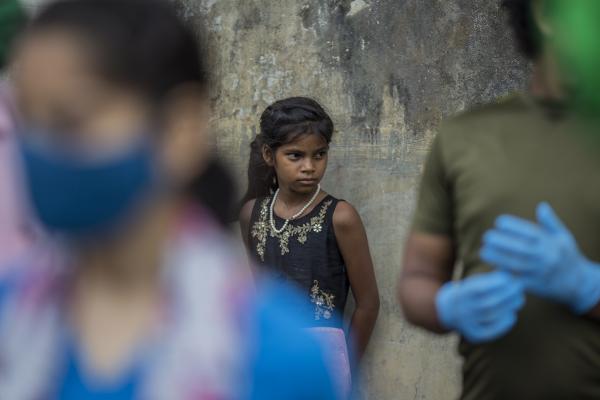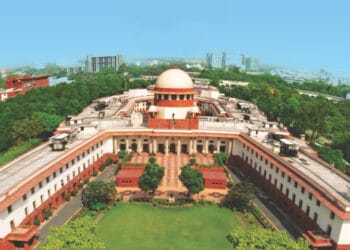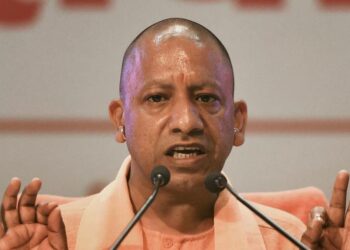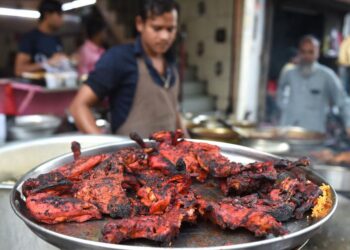Kanjhawala Village in the peripheries of Delhi is far from the imagination of a city. It still has Kacha roads, vast fields and some houses with basic infrastructure. More than 30 people who have autism and other mental disabilities are taken care of by Saksham Rehabilitation Centre(SRRC), a two-storey white building run by Dr Prabhat and Arpita Tyagi.
Eight-year-old Akash (name changed) is the youngest in the centre. A petite eight-year-old boy with an endearing smile on his face.
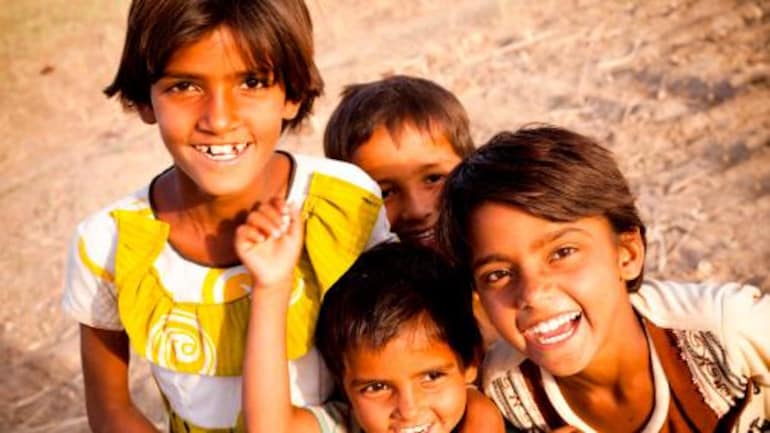
Fate has not been kind towards Akash. He was abandoned by his mother at a very young age who, after a few years later, succumbed to an unknown ailment. His grandparents, Janak Taneja and Dhaneswar along with his father, raised him in a small town called Haridwar. Due to frailing old age, both the grandparents could not provide Akash with the care and attention that a special child deserves. His father, on the other hand, spent most of his time in the tyre shop.
Akash’s plight took even a more drastic and unforeseen turn when he lost his father, who was battling with COVID-19. On April 22nd, Rohit Taneja’s oxygen level dropped abnormally and later passed away in Kailash Hospital in Dehradun.
Akash’s father was just 38 years old, while his grandfather was 70 years old.
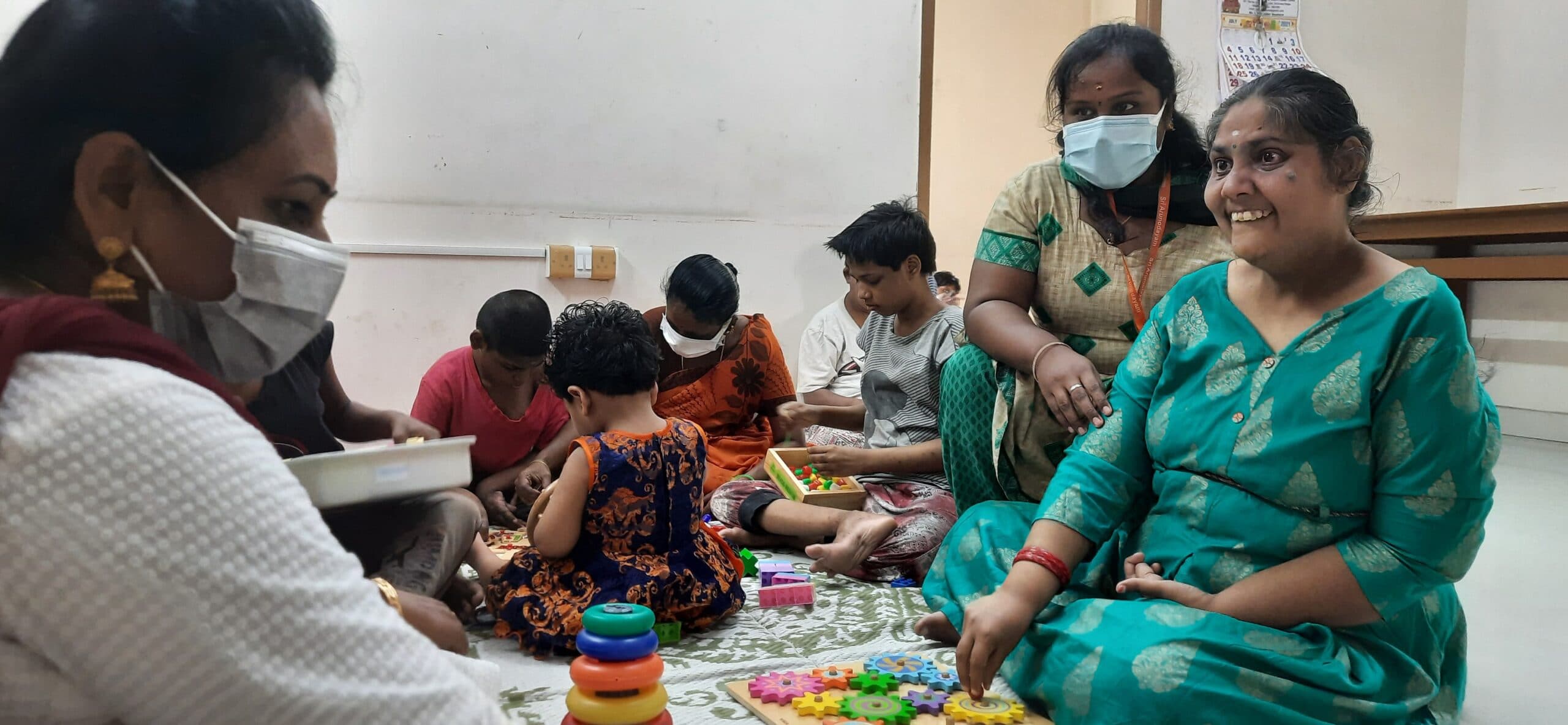
Akash remains unaware of this tragedy. Even if he is informed, he won’t be able to understand. He has autism and can’t walk without help. Akash was four years old when one of his relatives admitted him to SRRC.
Saksham facilitates around 36 people, currently, and consists of small classroom areas and an exercise area. On normal days, the kids and the older people get their physiotherapy and other sessions, but the pandemic has restricted visitors. The doctor duo started it in 2007 for kids and senior citizens with mental disabilities, with fee structures according to parents financial capacity(Rs 7,000–17,000).
Tyagi explains the reason behind starting a centre, “We always wanted to start something like this. Delhi has one centre for autistic and mentally disabled children called Asha Kiran in Rohini. It has a capacity of 800 and already has 6000 children, and here I am talking about children below 18. In my knowledge, there is no space for kids above 18.”
Before coming to Kanjhawala, Tyagi’s had rented space in Rohini, but they had to shift because the neighbours raised the issue. He doesn’t have a board outside his centre, to keep it low-profile.

Tyagi points out that it is easy to exploit a child sexually or mentally in a crowded space like Asha Kiran. To ensure complete safety, he and his family live on the second floor of the building. “We have kept women to look after the kids; we live here so that we are here for them whenever they need us,” he said.
The centre is getting more calls from the people who know of kids suffering from mental disabilities, orphaned due to covid. However, Tyagi is not worried as of now. He assures that the centre has the financial capacity to take care of at least four kids for at least six months.
Yogesh Sharma (Chunmun), another Saksham beneficiary, doesn’t move from his position for hours. The 18-year-old patient suffers from profound mental retardation. His case is so severe that he doesn’t have the cognitive ability to judge what is edible.
Chunmum lost his mother last year due to covid. His mother was a Delhi Jal Board employee. His father has never interacted with the centre in 8 years. Chunmun is now taken care of by his two older sisters.
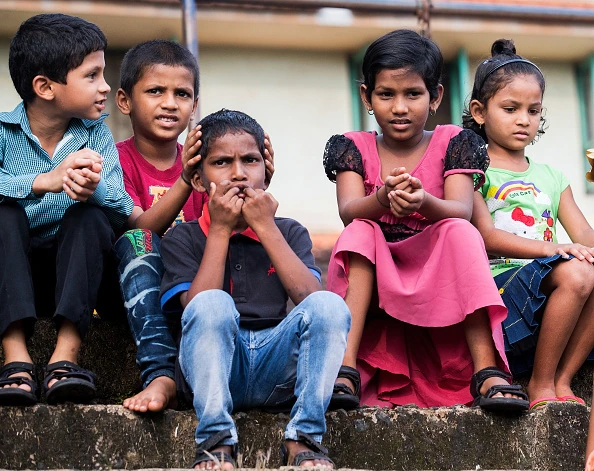
On May 29th, Prime Minister Narendra Modi announced a scheme, ensuring financial assistance for children who have lost their parents to Covid-19. The legal guardian, surviving parent or adoptive parents can receive the financial aid under PM cares fund.
According to the guidelines, a corpus of 10 lakh will be created for every child, for monthly expenditures. The kid can obtain this amount when they reach 23 as one lump-sum amount for professional or personal use. The scheme also promises to provide 5 lakh health insurance and free education.
States like Tamilnadu, Kerala have already announced welfare schemes for children who have lost their parents to covid. Earlier, Delhi has assured financial assistance of Rs 2500 in the form of a stipend until the child reaches the age of 25.
Tyagi explains the complications of documentation and ensures he will get the documents like the Aadhaar card, birth certificate, and bank accounts made or obtained from the family member.
The chairperson of the Delhi Child Welfare Committee, Varun Pathak, addressed this concern, “These schemes will need you to have a bank account as you are receiving financial aid from the government.
No bank will open an account for you without valid documents. If the child doesn’t have these documents, they should contact government officials, and they will be helped”.

Pathak explains, “Children with disabilities are often abandoned. Once they are brought under the provisions of the Juvenile Justice Act, the Welfare committee takes care of them”.
However, Pathak doesn’t have any list of disabled children who got orphaned due to covid.
“The scheme is merely an announcement as of now. Once it is implemented, we will be able to comment on how inclusive it is. As an NGO, our task is also to ensure that this gets implemented properly,” said Tyagi.
He added, “No scheme is made keeping in mind the disabled. But in most cases, the government realises it has missed out on a certain group and then adds them to the scheme. I am sure there will be a similar step in this case as well”.
Meanwhile, Akash’s grandmother is considering running the repair shop at the age of 60. “It’s a rented shop, but I will do my share to keep it running,” she said.
Also Read :Assam Boat Accident: 1 Reported Dead And 2 Missing.


